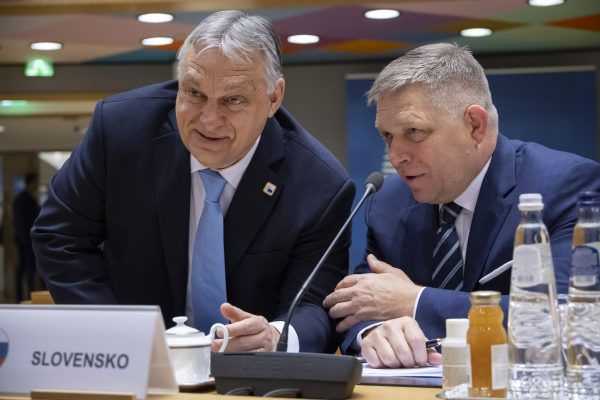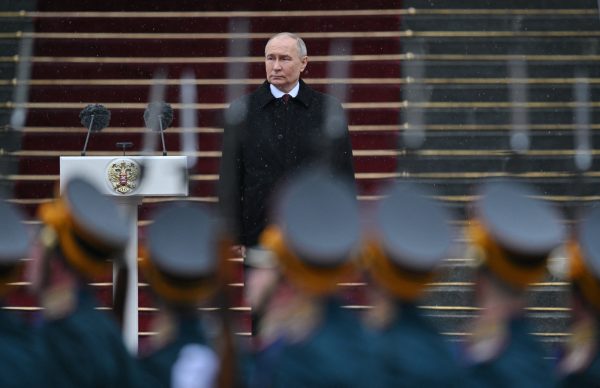The mistakes were made in the west, and the price paid in the east. That is the story of Europe’s Russia policy since 1991. Sylvie Kauffmann, the doyenne of France’s international press corps, tells it in her new book Les aveuglés: literally, “the blinded” but better translated as “The Blindsided”. A former correspondent in Moscow, Warsaw, and Washington, DC, she lays bare the gullible and greedy policy adopted by the big rich countries of the “old West” and how they systematically ignored the warnings of those who had recently emerged from the Soviet empire’s grip.
The Kremlin played to each country’s weakness. For Germany, it was cheap natural gas, plus feelings of guilt (albeit highly selective) about the Nazi past. For Britain, it was the chance to play butler to Russia’s super-rich and access the country’s oil and gas riches. For Italy, it was Russia’s export market. For France, it was chiefly flattery: “the permanent dream of building a security architecture for Europe which, in the mind of Paris, cannot be imagined without Russia.”
The story is well-known in outline, but Kauffmann’s vivid and insightful reporting brings the details to life. We read of how in June 2021 Estonia’s Kaja Kallas, the newest member of the European Council, representing one of the EU’s smallest countries, single-handedly derailed a Franco-German attempt to “reset” relations with Russia after it seized Crimea. Initially, Kallas thought she had blundered, but then other countries congratulated her on her stance, and Angela Merkel apologized for berating her. Kauffmann recounts how Kallas’s eyes “sparkled” at the memory.
Yet the Germans should have known far earlier what they were dealing with. Putin was abominably rude to Merkel. But his officials were a little better. At one point a senior German official asked his Russian counterpart if communiqués after the two leaders’ phone calls could be phrased differently, to show the discussions as the result of mutual interest rather than always at the German side’s request. “You’re joking, right?” was the caustic Russian response. It remains a great mystery that Merkel, with her deep knowledge of and sympathy for Poland, and her equally well-grounded antipathy to Soviet communism, could have pushed her country so hard in the direction of gas dependency on Russia. The German leader writes Kauffmann, “was “undoubtedly the ablest among Western leaders to understand the psychology of Vladimir Putin, the one who was the least seduced, to put it mildly, by his character, yet despite everything the most reluctant to confront him frankly”.
Kauffmann lets American decision-makers off rather lightly. The disastrous outcome of the NATO summit in Bucharest in 2008 was not just the result of German and French unwillingness to stand up to Russia. It also reflected bungling by the American side, in failing to prepare the ground properly for the proposal to give Ukraine and Georgia “Membership Action Plans”, creating a clear pathway into the alliance. The Obama administration’s gimmicky “reset” of 2010 gets only cursory treatment. So too do all of the 1990s, and in particular the shameful run-up to the Budapest Memorandum of 1994, in which Belarus, Kazakhstan, and Ukraine gave up their shares of the Soviet nuclear arsenal in exchange for flimsy security non-guarantees. A new article in the National Review, based on previously unseen American documents, shows the combination of naivete and cynicism in the US position, the not-so-latent imperialism of the supposedly friendly Yeltsin Kremlin, and how desperately — and presciently — Ukraine and its allies resisted.
Kauffmann’s book is, for now, available only in French. A German edition cannot come soon enough. An English one would be handy too.
Europe’s Edge is CEPA’s online journal covering critical topics on the foreign policy docket across Europe and North America. All opinions are those of the author and do not necessarily represent the position or views of the institutions they represent or the Center for European Policy Analysis.





